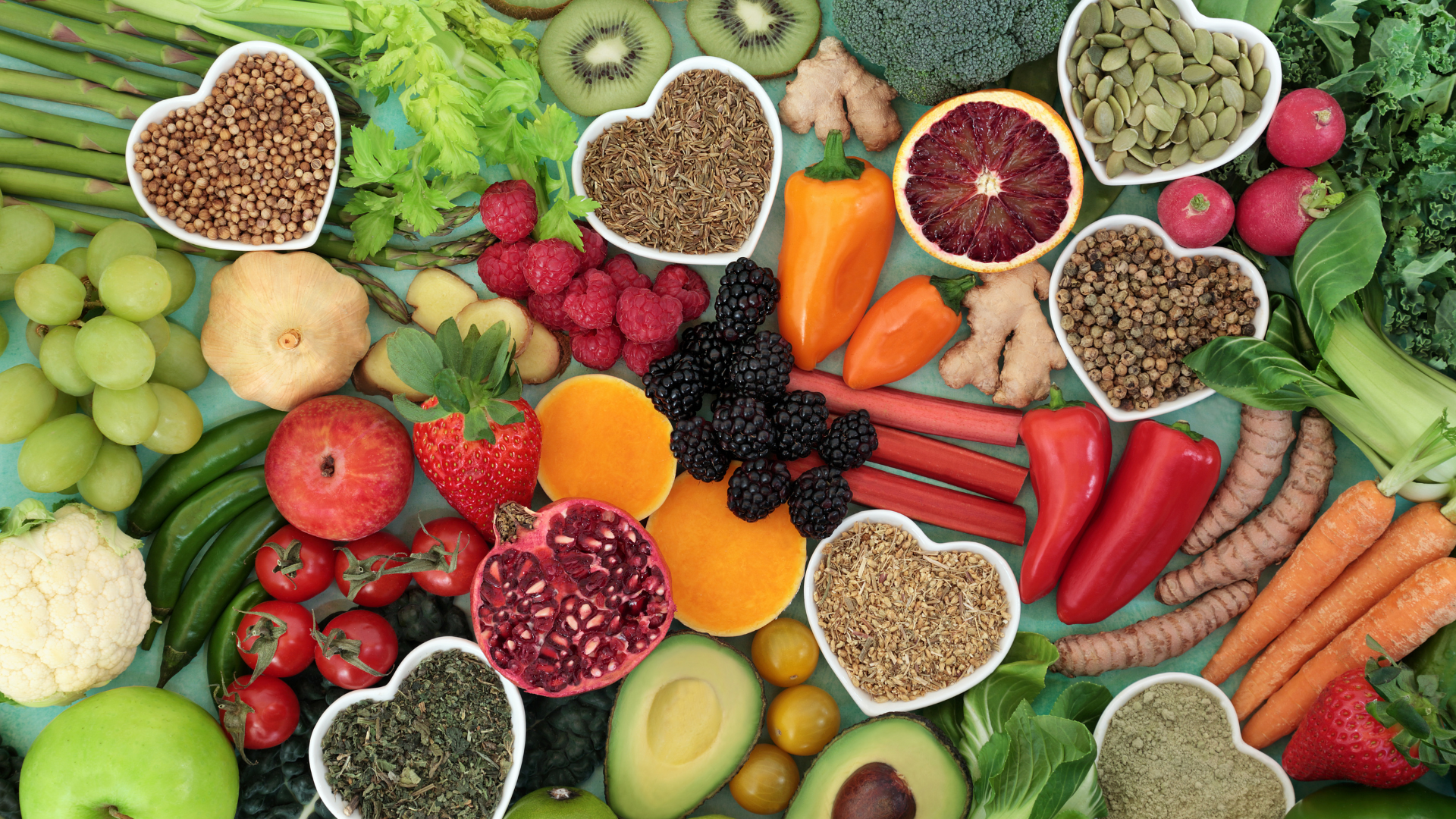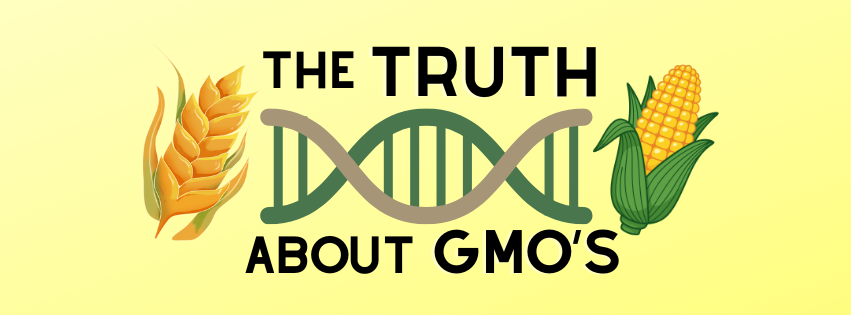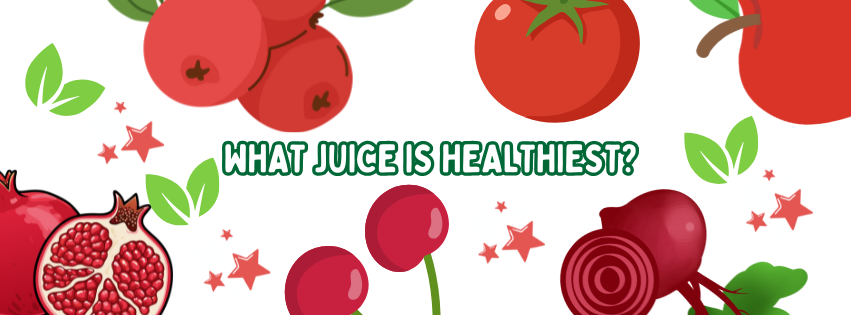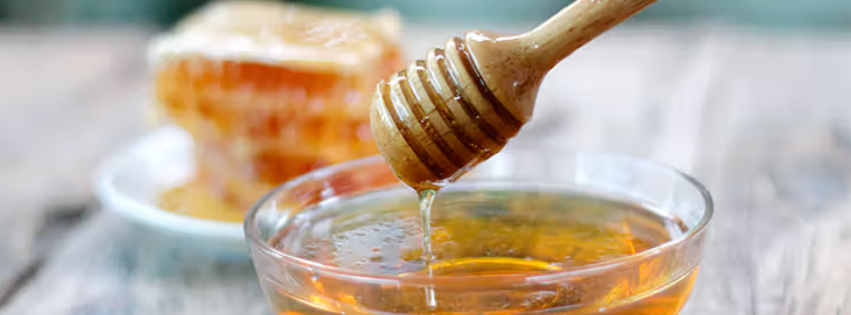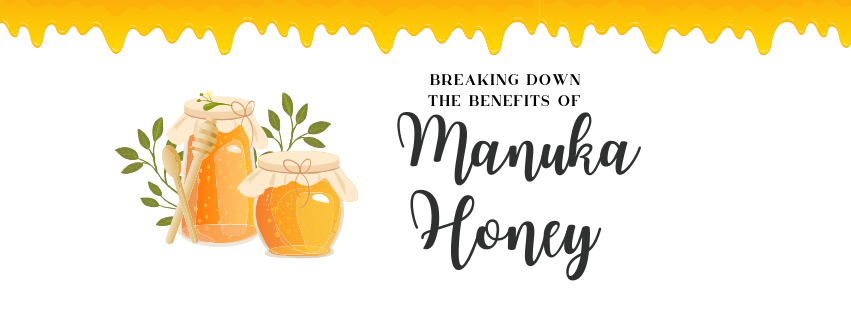The Link Between Stress and Immunity
Winter Stress
The Winter Season is here, and that brings a lot of joy into our lives, but also, a lot of stress and sickness. Did you know that your stress levels have an impact on your immune system? Your body’s stress response can trigger several physiological changes, which can affect immune function. Let's explore how it happens and how you can fight against it.
What's the Connection?
When stress occurs, immune cells are transported through the bloodstream and into the skin. This helps boost immunity so the body can respond to immune threats.
However, if stress goes on too long, your immune function declines. This can be troubling, especially if it feels like you're at your busiest. Luckily, there are a few steps you can take to both relieve your stress and improve your immune system before you're stuck at home blowing your nose all day.
Exercise
Exercise can be a stress reliever in almost any form. It pumps up your endorphins and improves your mood. It doesn't have to be a full hour-long workout, you can reduce stress with simple exercises like walking, cycling, hiking or yoga. For more tips on short but effective exercises, check out our blog post on
VILPA.
Exercise can also help boost immunity, so incorporating it into your lifestyle is the perfect way to stay healthy during the winter months.
Minimize Screen Time
We all love using our phones to distract ourselves, but several studies have linked excessive smartphone use with increased stress levels and mental health disorders. Furthermore, it can negatively affect your sleeping schedule which can also increase your stress. We all need to use our phones sometimes but it's best to try and put it down whenever you can.
Eat Healthy
Making changes to your diet can help relieve your stress. For instance, stress can lead to cortisol dysfunction and eating sweet potatoes can help lower cortisol levels. Here are a few foods that can help relieve stress:
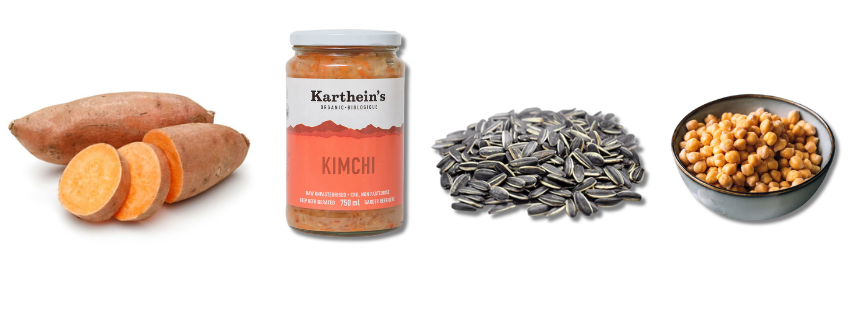
Kimchi is a fermented vegetable dish packed with probiotics and high in vitamins, minerals and antioxidants. Research shows that fermented foods may help reduce stress and anxiety. Karthein's makes a very delicious kimchi.
Sunflower Seeds
are a good source of Vitamin E, which acts as a powerful antioxidant and is essential for mental health. They also contain stress-reducing nutrients.
Chickpeas packed with stress-fighting vitamins and minerals, including magnesium, potassium, B vitamins, zinc, selenium, manganese, and copper. They are also rich in L-tryptophan, which your body needs to produce mood-regulating neurotransmitters.
We have both sunflower seeds and chickpeas available in bulk at our Lansdowne location.
Supplements
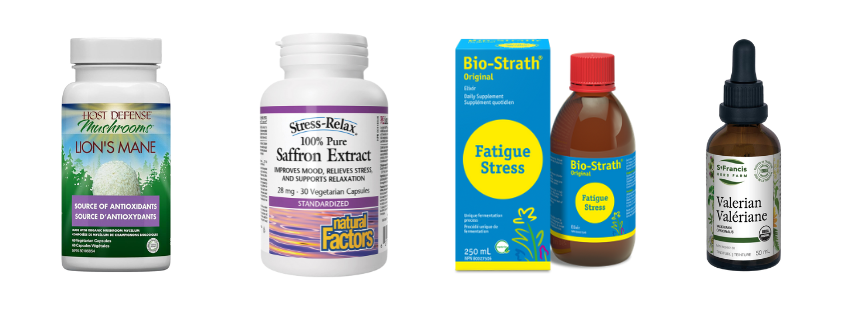
Host Defense Lion's Mane: Research from 2018 supports the potential of lion's mane, suggesting it may delay neuronal cell death and help against the effects of oxidative stress. Lion’s Mane has also been nicknamed “the smart mushroom” due to preliminary research showing that it may support brain health.
Natural Factors Saffron Extract: Saffron is nicknamed the sunshine spice. This is not just due to its distinct color but also because it may help brighten your mood. This extract promotes relaxation and restful sleep and supports emotional well-being in the face of occasional stress.
Bio-Strath Fatigue Stress: Helps promote well-being by decreasing fatigue and support the body during periods of physical and mental stress. Also a great source of antioxidants.
St. Francis Valerian: With a long history of therapeutic use, Valerian is an outstanding classic nervine herb, it tones, calms, and heals the nervous system.
For Immunity
There are several changes to your diet that can help boost your immunity as well, such as:
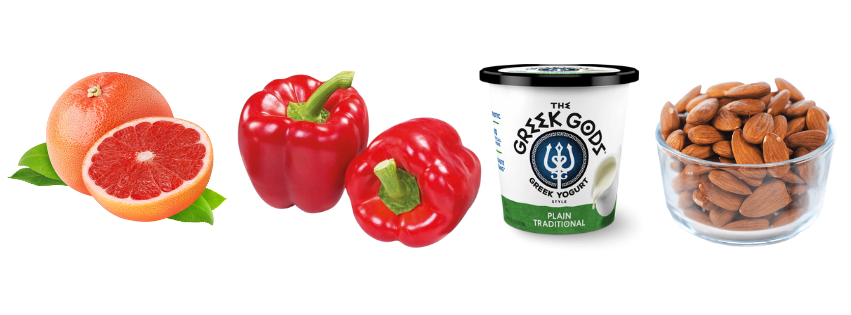
Citrus Fruits: Vitamin C increases the production of white blood cells, which are key to fighting infections. Because your body doesn’t produce or store it, you need daily vitamin C for continued health. Citrus fruits like grapefruit, oranges and lemons are a great source of vitamin c.
Red Bell Peppers: Are also very high in vitamin c, in fact, red bell peppers contain almost 3 times as much vitamin C as a Florida orange.
Greek Yogurt: Yogurts like Greek God's Greek Yogurt have live and active cultures, which stimulate your immune system and help you fight diseases.
Almonds: When it comes to preventing and fighting off colds, vitamin E tends to take a backseat to vitamin C. However, this powerful antioxidant is key to a healthy immune system. A half-cup serving of almonds, provides 100% of the recommended daily amount.
Factors that Decrease Immunity
Smoking: Smoking can increase inflammation throughout your body and negatively affect your immune system. This may make you more susceptible to infection.
Drinking Alcohol: Drinking heavily reduces your body’s natural immune system, however, it's okay if it's done in moderation. Make sure you're watchful over how many drinks you're having this winter season.
Inadequate Sleep: Sleep deprivation prevents your immune system from building up its forces. If you don’t get enough sleep, your body may not be able to fend off invaders, and it may also take you longer to recover from illness.
Supplements
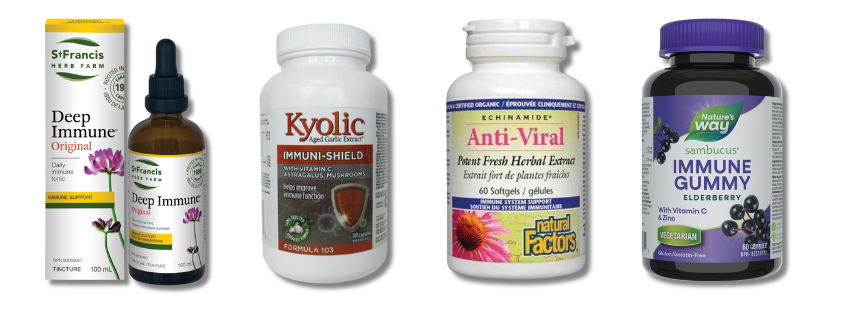
St. Francis Deep Immune: Supports and fortifies the immune system by restoring the body’s innate balance. Taken daily, Deep Immune helps to keep your natural defences strong – ready to take on colds and flu!
Kyolic Immuni-Shield: This combination of vitamins, mushrooms, and herbs helps to support healthy immune function.
Natural Factors Anti-Viral: Anti-Viral is a fast-acting, incredibly powerful immune-support supplement. The result of years of extensive research by Natural Factors in collaboration with researchers at leading universities around the world.
Nature's Way Immune Gummies: Nature's Way Sambucus Immune Support Gummies have the added benefit of Vitamin C and Zinc for Immune Support. These elderberry gummies are traditionally used in Herbal Medicine to help relieve symptoms of colds and flus.
Conclusion
The link between stress and immunity is very real and you should prioritize both in order to stay in tip-top shape. Lowering your stress may seem like a daunting task but as long as you incorporate exercise and healthy food into your diet, while also getting a good amount of sleep each night, it will become a whole lot easier. Make sure you're filling your body with Vitamin D, C and Zinc to ensure you're getting the most immune-support you possibly can!
